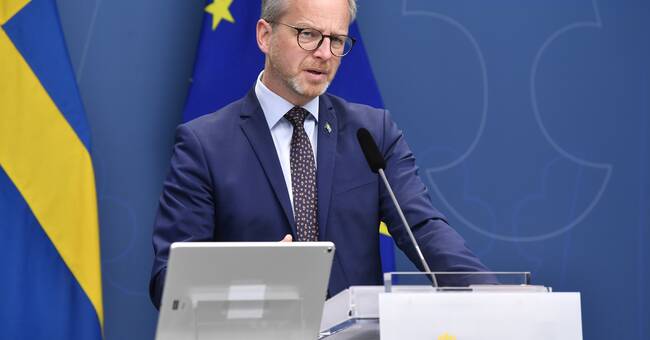Young people who are at risk of developing crime may need to be protected from certain places or areas in society, writes Minister of the Interior Mikael Damberg (S) and three other ministers on Dagens Nyheter's debate page.
It is about giving the social services new tools to protect children from environments where they risk pressure to commit crimes.
-It can be an open drug scene, for example, where criminals stand and sell drugs, says Damberg.
Get opportunities
The social services today have few opportunities to protect children from specially designated places or areas in society where they risk being harmed, as the conditions for compulsory care according to the law on care of young people are not yet met, the ministers write.
The government will therefore commission an investigator to investigate a so-called residence ban.
-In a sense, it is intervention against children, on the other hand, today we lack sufficiently powerful tools to go in early, says Damberg.
He points out that it is also about helping parents to ensure that their children are not involved in criminal contexts.
A restraining order would mean that the social welfare board is given the opportunity, with the support of a court, to restrict the right of individual children to stay in certain places or in certain areas of society that can be considered harmful.
Disposal current
If a child were to break a restraining order, it could ultimately lead to the child being taken into care.
-But the idea is to be able to intervene earlier to avoid that type of action, says Damberg.
For young people from the age of 15 who have committed a crime, there has been an opportunity for a court to decide on juvenile supervision since the turn of the year.
This means a ban on leaving home on weekend evenings or a ban on staying in a certain place.
The monitoring can take place through an electronic foot shackle.
Many criminal leaders are in prison or in custody, much thanks to information received by the police from the so-called Encro cats.
It has reduced the gangs' attractiveness among the younger ones.
Calls for "general meeting"
According to National Police Chief Anders Thornberg, a window has opened, which means an opportunity for society to stop new recruitment, for example by schools and municipalities, together with the police, exchanging information so that young people can be identified on their way into crime.
On May 7, the government will convene a "general meeting" with municipalities that have vulnerable areas and with the police to see what can be done.
-We want to focus on breaking new recruitment now, and we want to listen to what the municipalities that have the most experience of this do, says Damberg.

